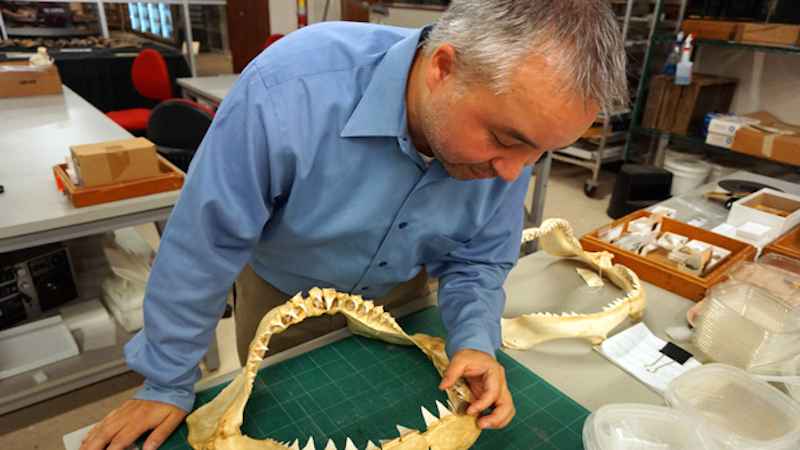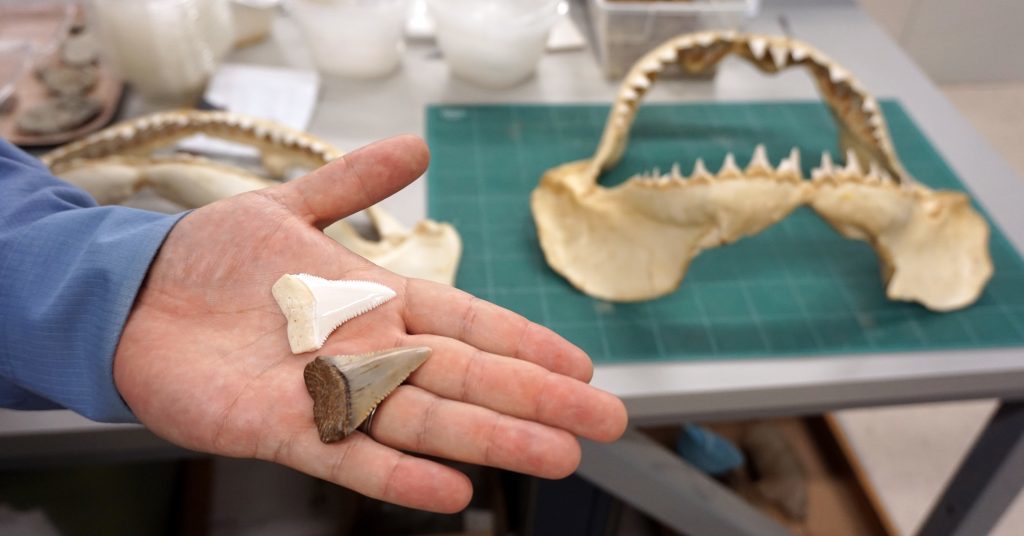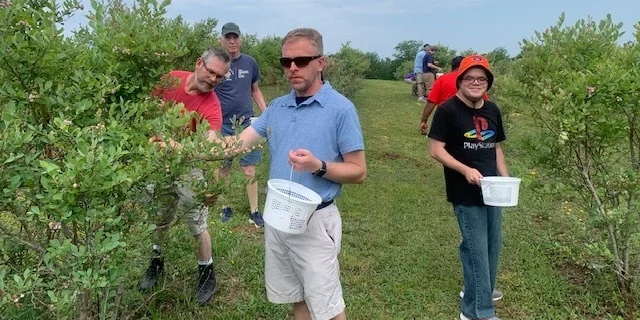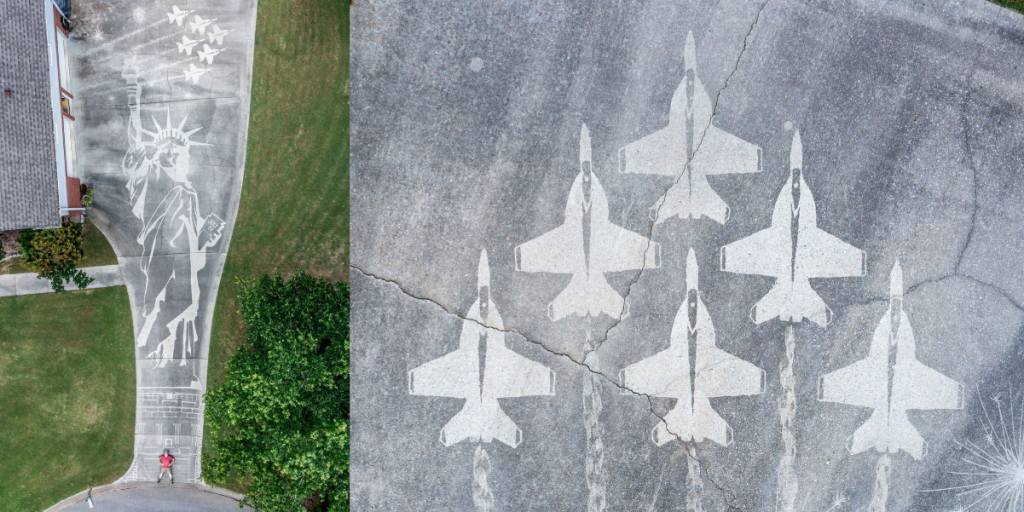
Humans have a primal fascination with sharks. From box office smash-hit movies to Discovery Channel’s popular “Shark Week,” people just cannot seem to get enough of the ancient underwater beast.
If you’re reading this from somewhere in Alabama, there is a solid chance that a shark swam not far from where you are sitting many geological eras ago. Believe it or not, Alabama has spent most of its geologic history beneath a shallow ocean ruled by creatures of the deep. Due to its aquatic past, the Yellowhammer State is actually one of the best places in the United States to find fossilized shark teeth.
According to a recent report published by researchers from Birmingham’s McWane Science Center, the Geological Survey of Alabama in Tuscaloosa, and South Carolina’s State Museum, scientists have discovered and identified the first early Ice Age shark teeth found in Alabama. The scientists have determined the teeth are somewhere in the ballpark of 2 to 2.6 million years old.
Jun Ebersole, paleontologist and Director of Collections at McWane Science Center, heard anecdotal evidence about fossilized shark teeth discoveries on Alabama’s Dauphin Island for a while. He eventually contacted Richard Dixon, director of the Dauphin Island Sea Lab, who had collected almost 100 teeth over the years.
With the help of his research colleagues, Ebersole identified 12 different species of shark’s teeth from Dauphin Island samples, including two species that have since gone extinct. “Most of these species have modern representatives that still live in the Gulf of Mexico today,” Ebersole told the Alabama NewsCenter. “But we were also able to identify two shark species that had gone extinct during the Ice Age.”

The research team returned the teeth to the Dauphin Island Sea Lab, where they can be revisited for future research and educational purposes. Ebersole hopes the non-professional discoverers of such artifacts will follow his example.
“It is my hope that beachgoers find many more and donate them to their local museums,” he said. “That way they can be studied by paleontologists and these remarkable fossils can be shared with the world.”












